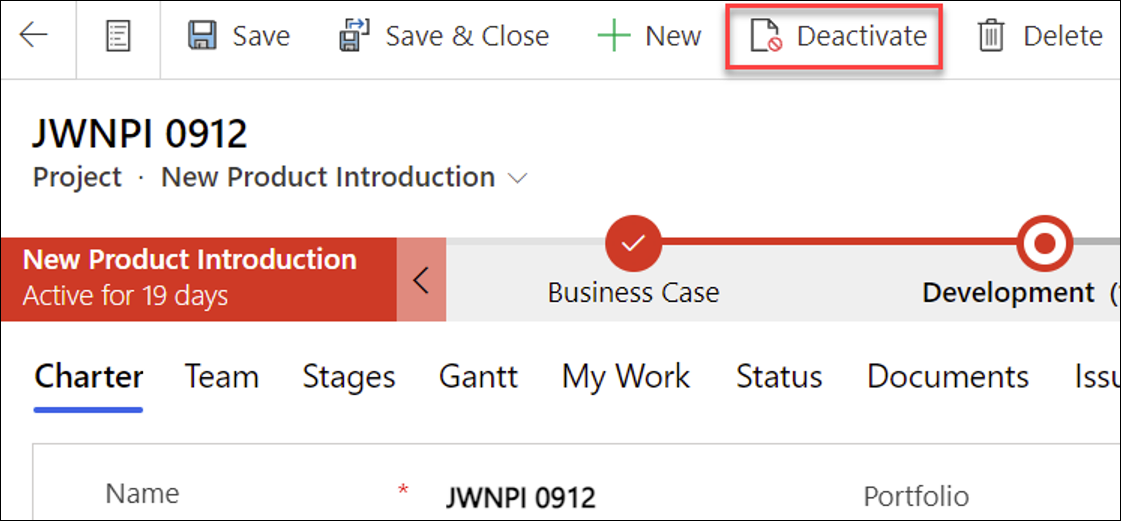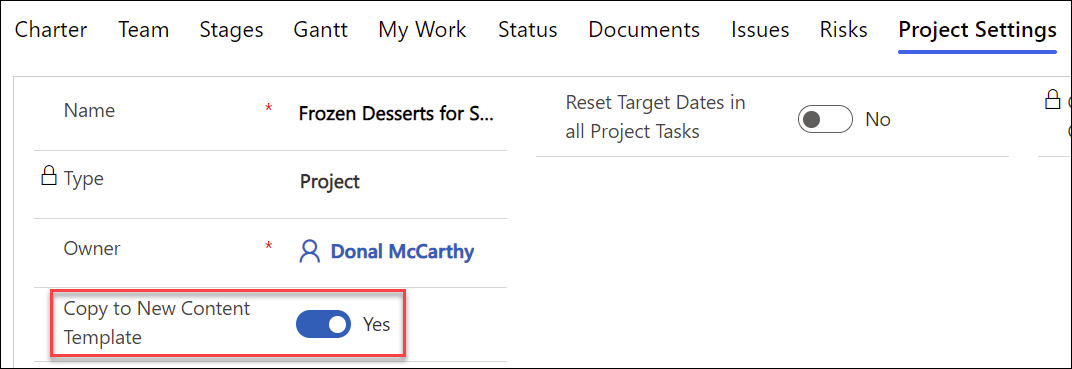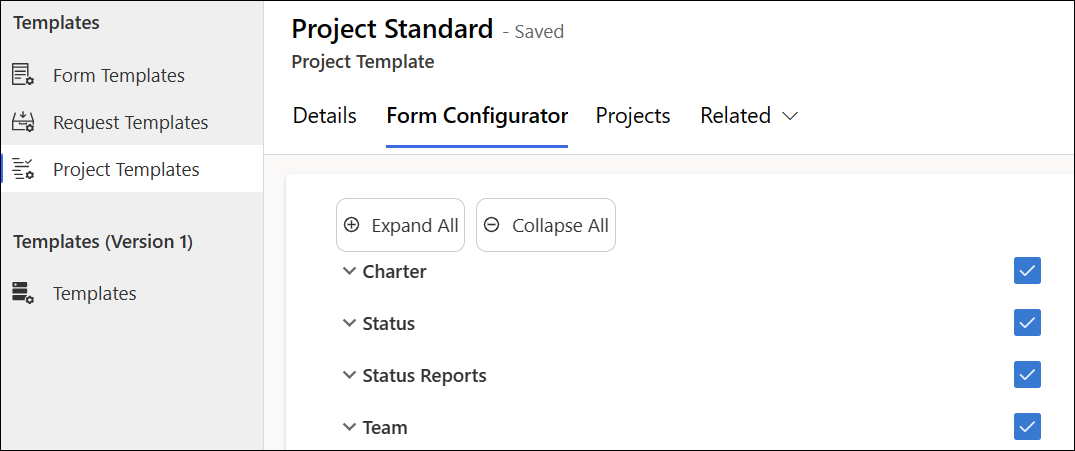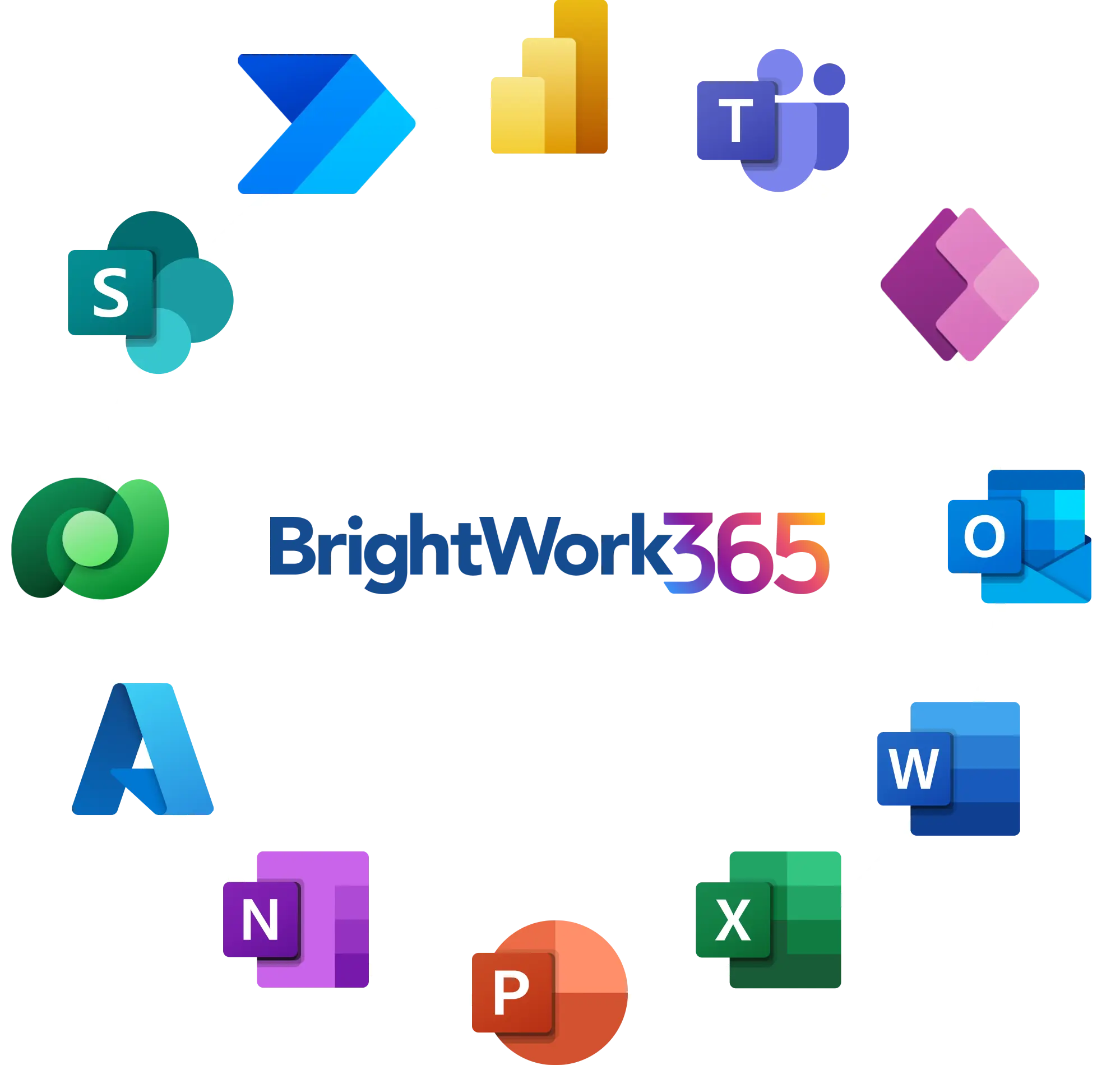What Happens After Project Completion?
One of the defining characteristics of a project is that it ends. It is planned, executed, tracked, and closed – hopefully delivering the benefits promised immediately!
But projects are complicated. The unexpected will happen during a project. Things will go wrong. So when the end of a project is successful, there is certainly reason to celebrate – but not before you close the project properly!
Busy project managers tend to move quickly from one project to another. If you’re one of them, consider streamlining your project portfolio management with our project management templates for Microsoft 365 and the Power Platform.
Why are Lessons Learned Important?
Lessons learned are the documented experiences of a project’s successes and challenges.
They serve as a vital resource for refining project outcomes by identifying areas for growth and scaling up effective practices.
Recognizing the strengths and weaknesses of past projects equips teams to develop better strategies for future projects.
Integral to Organizational Process Assets
These insights enhance organizational process assets, including the plans, processes, procedures, and knowledge bases that support project execution.
This documentation also highlights the necessary skills, experiences, and behaviors for team success, aiding PMO leaders in crafting focused training and development programs.
When to Document Lessons
Capturing lessons learned isn’t restricted to the project’s conclusion – it can be integrated at various stages:
At Project Inception
Reviewing prior projects and gathering input from experienced project team members lays a solid foundation.
During Project Phases
Each project phase presents an opportunity to document learnings and strategize adjustments before progressing.
At Project Closure
Reflecting on the entire project at this stage offers a comprehensive journey overview.
Improving Project Outcomes
This paper shows how regularly documenting lessons learned enhances project deliverables.
It’s more effective to record observations as they occur rather than waiting until the project’s completion.
Integrating a lessons-learned intake form on your project site can facilitate ongoing feedback during the project lifecycle.
Maximizing Lessons Effectively
The actual value of lessons learned lies in their application. Centralizing these insights in an accessible repository or register ensures that all teams can benefit from this collective wisdom.
Central storage allows PMO leaders to analyze historical data, identify recurring patterns, and foster innovative process improvements.
3 Quick Steps to Capture Lessons Learned with Microsoft 365
Capturing lessons learned is crucial in refining and enhancing project management practices. Microsoft 365 offers an organized and efficient approach to gathering, analyzing, and applying the insights gained from past projects.
Let’s explore three straightforward steps to help you use Microsoft 365 and Power Platform project management to capture valuable lessons and integrate them into your future project planning and execution.
1. Close the Project Site
Closing a project involves more than completing tasks; it includes closing the project site in Power Apps. This step is critical to ensure accurate project reporting and clarity in portfolio dashboards.
If left open, the project site may continue to generate data, potentially leading to confusion or misinterpretation in ongoing reports.
It’s essential to approach the closure with foresight. Instead of archiving or hiding the site, consider keeping it available for a period. This allows project managers and team members to revisit the site for valuable data that can inform the planning and execution of future projects.
Optimizing Dashboards
The site can be a resource for best practices, lessons learned, and successful templates. It is a valuable asset in continuously improving project management processes.
Therefore, thoughtful management of the project site’s closure in Power Apps can significantly contribute to the efficiency and effectiveness of subsequent projects.

2. Capture Lessons Learned
Capturing lessons learned is integral to the project’s growth and development. Conducting lessons-learned sessions at important project milestones and closures provides an opportunity to reflect, learn, and apply valuable insights for future projects.
What went well, and what can we learn from that?
This question focuses on the successes of the project. Identifying these positive aspects boosts team morale and helps replicate these successes in future projects.
Recognizing effective strategies, techniques, or team dynamics contributing to the project’s success is crucial for establishing a framework of best practices.
What didn’t go so well, and what can we learn from that?
This question addresses the challenges faced during the project.
Understanding the root causes of setbacks or inefficiencies is essential for continuous improvement.
This helps refine processes and avoid similar issues in future projects.
What should we do to improve our next project?
This forward-looking question encourages a proactive approach to future projects. It’s about translating insights from successes and challenges into actionable strategies for upcoming ventures.
Participation from all project members is vital in these sessions to ensure that feedback and recommendations are comprehensive and encompass all project areas.
Methods of Collecting Feedback
Various methods can be used to gather meaningful feedback that offers unique advantages. Here are a few effective approaches:
- Survey – Utilizing surveys is an efficient way to gather feedback from a large group. It allows team members to thoughtfully consider and articulate their views on the project, leading to a more thorough and reflective assessment.
- Meeting – Meetings offer a platform for open, face-to-face discussions, enabling more dynamic and interactive feedback. They are especially compelling in smaller groups or when nuanced, complex topics must be unpacked collaboratively.
- Meeting and Survey – Combining surveys with meetings can optimize the feedback process. The survey responses can guide the focus of the meeting discussions, ensuring that critical issues are addressed comprehensively.
3. Update Project Templates with BrightWork 365
Streamlining project management processes becomes straightforward with Microsoft 365, Power Platform and BrightWork 365. After project completion, assess the changes made to your project site. These insights are vital for enhancing future projects.
Use BrightWork 365 project management software to apply these lessons to your project templates. You can do this in two ways:
- Use Content templates
- Update and save new templates with Form Configurator
BrightWork 365’s Content Template and Form Configuration make it easy to integrate these updates into new project sites. This efficient method ensures that each subsequent project benefits from the previous project, promoting consistency and continuous improvement across your organizational projects.
Content Templates
BrightWork 365 allows you to create templates from an existing project that will include the content from that project – these templates are called Content Templates.
The template will include content from tabs such as Stages, Deliverables, Tasks, Issues, Risks, and Project Settings. This feature helps your project colleagues quickly start new projects using best practice templates from other similar projects.

Form Configurator
The Form Configurator tool provides Template Editors with the ability to hide or show Project Template Form Tabs, Sections, and Columns with point-and-click ease.
It allows users to adjust the amount of process in projects and better focus on the most relevant project elements. You can think of it as a map of the form behind the lessons learned template.

How to Create a Lessons Learned Survey
Creating a comprehensive Lessons Learned Survey can uncover both successes and areas for improvement in your project. Here are a few ideas to help you get started.
1. Project Overview
To obtain a clear understanding of the project’s initial parameters and outcomes, consider expanding your questions to include:
- How did the initial goals and objectives evolve during the project?
- Were there any significant changes to the success criteria during the project?
- How closely did the outcome match the initial project vision and scope?
- What factors influenced any deviations from the original expectations?
2. Project Highlight
Focus on specific project successes that provide replicable strategies for future projects:
- What unexpected successes did the project experience?
- Which project management tools or techniques yielded the best results?
- How did team collaboration contribute to the project’s accomplishments?
- Were there any innovative solutions or strategies that proved particularly effective?
3. Project Challenges
Understanding the difficulties faced is vital for future project enhancements:
- Were there any recurring obstacles or issues that impacted project progress?
- How did communication practices affect project challenges?
- Which risk management strategies were less effective than anticipated?
- In what ways did project constraints (time, budget, resources) impact the project’s trajectory?
- What lessons can be learned from the team’s response to these challenges?
4. Additional Comments
Encourage team members to provide open-ended feedback:
- Are there any other insights or observations that need to be covered but could benefit future projects?
- Do team members have suggestions for improving team dynamics or morale in future projects?
Once your survey is set up, allow adequate time for your team to reflect and provide thoughtful and detailed responses.
This ensures more accurate feedback and demonstrates that their input is valued for organizational growth and learning.
How Do You Run a Learned Survey Session?
Although it takes a little more work, running a session to gather lessons learned from your team will generate better insights than relying solely on a survey. A meeting allows you to dig into the causes and implications of project successes and project failures from different perspectives.
Remember – these sessions focus on learning from the team’s collective experience, not assigning blame for mistakes or negative experiences. Your team should understand the purpose of the session, especially in terms of professional development, and feel comfortable with providing feedback.
Consider using our Office 365 management software to streamline the process and enhance collaboration to manage sessions like these efficiently.
Preparing for the Learned Survey Session
Effective preparation is key to ensuring the session runs smoothly. The goal is to create an environment conducive to open discussion, reflection, and learning. Here are some strategies to facilitate a successful meeting:
- Start by revisiting the project’s initial goals and objectives to set the context for the discussion.
- Compare the desired results with the final deliverables. Evaluate whether the goals of the project requirements were achieved and assess the client or project stakeholders’ satisfaction with the outcome.
- Review every project stage regarding successes, mistakes, outputs, and learnings. Evaluate the effectiveness of resource allocation and the team’s capabilities.
- Look at the project processes and plans. Assess whether the team adhered to the agreed project workflow and procedure, the project site’s usability, the project plan’s utility, and the effectiveness of team communication and collaboration.
- Assess team dynamics and interpersonal relationships by discussing interactions and collaboration. Identify strengths in relationships and areas for improvement in team dynamics.
- Evaluate the project management tools and techniques used. Discuss their impact on the project’s outcomes and team efficiency.
Effective Feedback Techniques
To maximize the value of your lessons-learned session, use diverse feedback techniques. These strategies help generate comprehensive insights:
Round Robin:
Each participant shares their viewpoint on a specific topic, like communication. This ensures that all voices are heard, fostering a holistic understanding of the team’s experiences.
Brainwriting:
Encourage creativity and deeper thinking by having the entire project team write their ideas on a card. Collect these cards and discuss the suggestions randomly during the session, sparking dynamic conversations and diverse perspectives.
Stop, Start, Continue:
This method involves asking the team to critically analyze current practices by identifying processes that should be ceased (Stop), initiated (Start), or maintained (Continue).
This promotes continuous improvement in project management methodologies.
Fishbowl Discussion:
Arrange a small group in the center to discuss a topic while others observe. After the discussion, observers can add their insights, ensuring diverse input and deeper analysis.
Plus-Delta Feedback:
Focus on what worked well (Plus) and what needs to change (Delta). This method categorizes feedback effectively, making it actionable.
Finalizing and Sharing Lessons Learned
After gathering comprehensive real-time feedback and key metrics through these methods, it’s essential to distill and apply these insights:
Collate and Analyze Feedback:
Review all feedback systematically. Categorize responses to clarify recurring themes and identify specific areas for improvement or replication in future projects.
Develop Actionable Strategies:
Convert feedback into actionable strategies. For instance, if communication barriers were identified, consider incorporating more frequent and structured team meetings or adopting new collaborative tools in future projects. These detailed lessons are imperatives for growth.
Share with the Team and Organization:
Present a detailed report of the compiled lessons to the team for validation and final input. Once confirmed, disseminate these lessons across the organization.
This reinforces a strong company culture that enhances the collective knowledge base, improving project management practices.
Incorporate in Organizational Knowledge Base:
Ensure these lessons are accessible by including them in your organization’s knowledge management system, like an internal wiki or shared drive of project documentation.
Research shows that this facilitates learning and application by any future project team, enhancing the overall project management process.
Strengthening Project Outcomes with Lessons Learned
Effective project management relies on applying lessons learned to improve processes and guide future success. Tools like Microsoft 365, Power Platform, and BrightWork 365 integrations enable teams to organize and share insights, enhancing collaboration.
Incorporating feedback methods such as Round Robin, brainwriting, and Stop, Start, and Continue ensures comprehensive project analysis and promotes a culture of continuous improvement and proactive problem-solving.
Embedding these lessons into organizational practices establishes a solid foundation for ongoing development. This commitment to reflective learning and knowledge sharing is vital to achieving more effective and successful project outcomes.
Project management on Microsoft 365
Watch a demo of BrightWork 365 project and portfolio management templates for Microsoft 365, Power Platform, and Teams.

